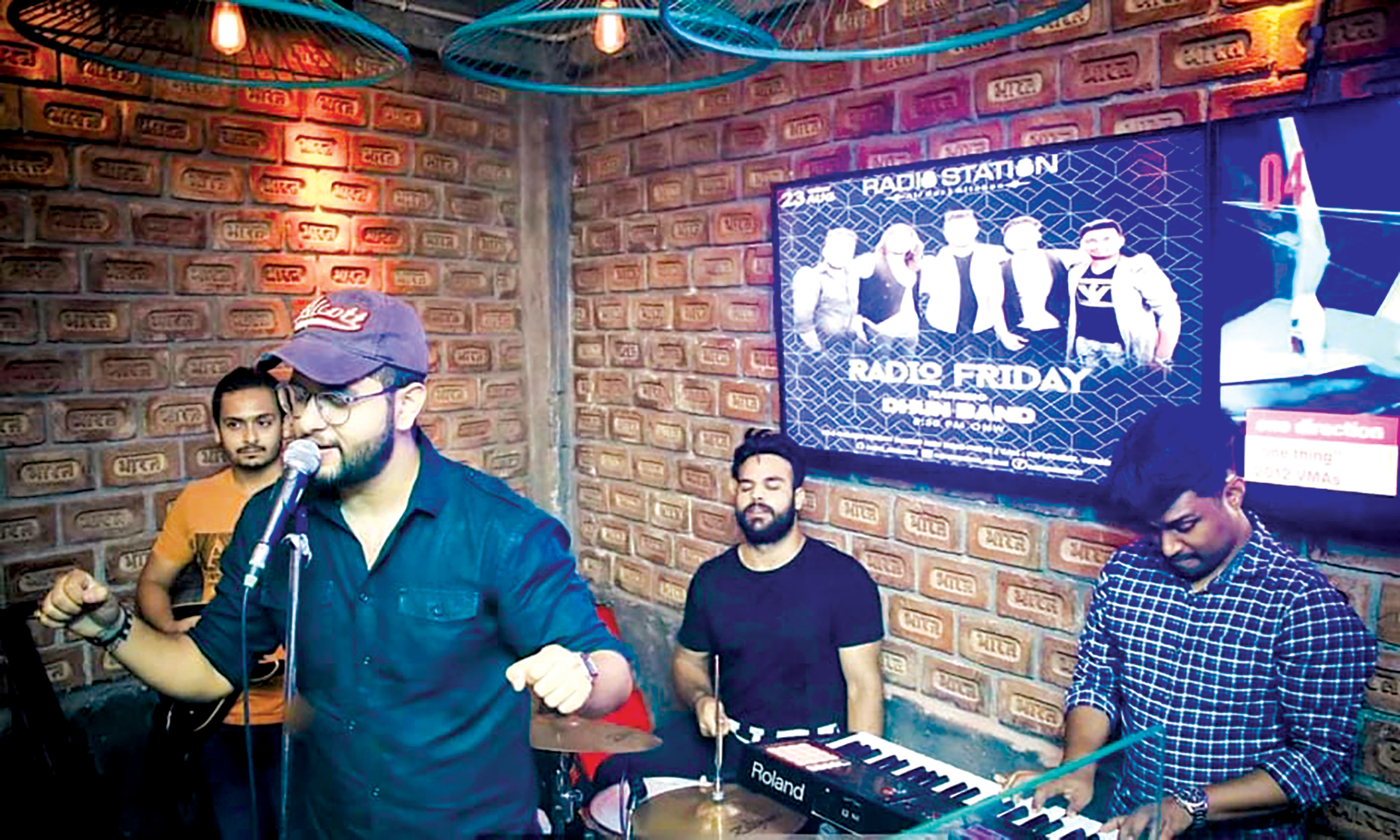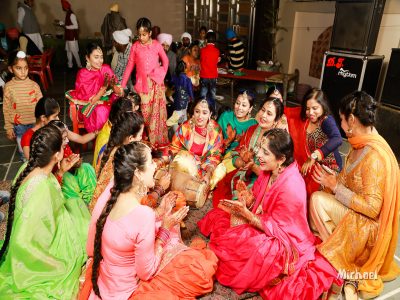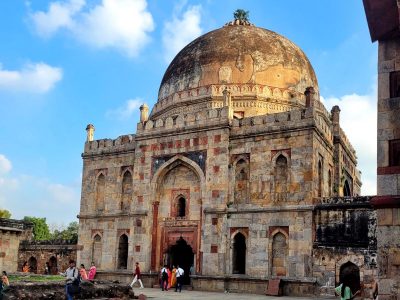As the economy suffers due to low demand, even music bands find few takers – and the wedding season is not expected to bring much cheer
Here’s one more thing to blame millennials for, after Finance Minister Nirmala Seetharaman blamed them for preferring cab hailing services to buying cars, thereby leading to crisis in the automobile sector. It seems too many youngsters are happy to form bands that perform for free in pubs and restaurants, quashing demand for established bands.
April to September is off-season for musicians. The onset of summer brings a lull in the music circuit, which perks up only when colleges host their annual festivals. The August-September “off-season” continues until wedding season hits the Capital.
For most bands in the Capital, weddings are a big source of income – in fact, they form the major chunk of business throughout the year. Infamous for hosting ‘big fat weddings’, Delhi-NCR provides ample work to even struggling artists.
Band members, managers and experts Patriot spoke to tell a story of struggle for those who play in pubs behind the stage.
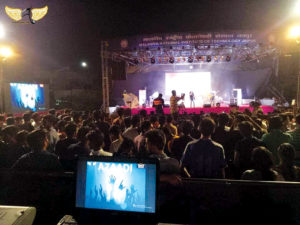
“Over the last 3-4 years, the rates bands can charge pubs and restaurants in Delhi have crashed drastically. You’ll be shocked as to how low the rates have fallen. They’re giving a two- or three-piece band as low as Rs 3,000 per evening,” said Subbir Malik, founder and keyboardist of Parikrama, one of the most well-known bands in India.
Malik is also the founder of Parikrama Inc, an artist management company. He says “A lot of new bands are coming, which is welcome. These new bands start playing in the pub circuit only. Economic conditions are so bad. That’s the reason, the rates of bands have been going down. Because even the pub owners want cheaper options.”
“Five years ago they (pubs) were paying bands Rs 60,000-80,000. Today their own sales have fallen quite drastically in the past two years. To be practical and fair to them, they’re also not able to afford bands as they could before,” Malik said.
He elaborates, “Suddenly, you have more supply than demand. There are far too many bands today, and far fewer live concerts.”
Amit Mutreja, vocalist and manager for one of the oldest bands on Delhi’s music circuit, agrees that getting live shows has become difficult than ever before.
“If you don’t have celebrity status then it becomes quite difficult for you to survive in the music industry. If you don’t have it yet, and are still struggling, then you get work only in peak season. Once the season is off, your work is off,” says Mutreja.
Such is the situation of the music circuit currently, that even bands like Azaadi, which has been in the business since 2004, get around two shows a month during off-season. The band charges Rs 1.25 lakh per show.
Mutreja, who is currently trying to become an established playback singer in Bollywood, has recorded a few songs for Hindi films too. “Some people who are new in the business try to negotiate. However, there’s little room left for us to negotiate, because we’ve been in the business for too long now.”
“The music circuit is quite open. There are far too many people available — those who are recording their own EP (extended play), are coming up with their own compositions. There’s more opportunity for them than bands who play only cover songs,” said Mutreja.
Collecting payments is another big hassle that bands face on a regular basis. “After the show, you f
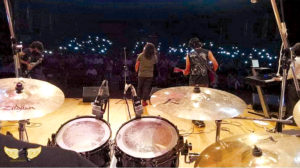
ace problems getting the payment. People change their behaviour and try to find mistakes in the performance,” said Mutreja.
Akshay Bhatia, who is a drummer and has been freelancing with many bands in Delhi-NCR says, “Weddings give good business to bands as the spending capacity tends to increase; 80% of the bands get major chunk of work during the wedding season.”
He has been in the profession for over eight years now and says that during wedding season, an average band also charges upto Rs 50,000, while industry heavyweights like Astitva and Local Train charge upto Rs 4 lakh and Rs 8 lakh respectively. “The price goes a notch up if it’s a destination wedding,” adds Bhatia.
During this year’s off-season, Yatin Arora, vocalist of Yatin Arora Project, got 3-4 shows a month. He entered the music circuit five years ago, and used to charge Rs 5,000 per show. However, over the years, he managed to bring the band to the price tag of Rs 50,000 per show. Until 2017, work came erratically.
Currently, from the 3-4 shows he gets, he rakes in upto Rs 1 lakh a month. Once the peak season arrives in October, he gets about 10-12 shows a month. He is aiming to get upto Rs 65,000 per show for the band in the upcoming peak season of weddings and galas.
He also says that the newbies — the bands which are emerging in the circuit — fail to understand their worth. “They don’t know the price they should be quoting and getting. Because they don’t get enough work, they’re ready to do the shows for free too.”
Arora says that the emerging bands also play for free in the clubs, which is the machinery of off-season all year around. So, why do these young rockers play for free? “They’re getting experience, people are seeing them and clapping for them,” answers Arora.
Tarun Marya, founder of Event Styler, an event management company says, “Club owners tend to not invest too much because there’s enough competition between bands too.” He also manages bands like Dhun, Akhira and Taqdeer.
“The market is not firming up nicely because every other person is becoming an artist — like college students. They’re playing in the clubs for a glass of beer, so the real talent fails to shine.”
Marya says that “the talented artists who demand a better fee face problems, the club owners refuse to give these artists money and in reply say people come to us for free.”
“Everyone knows about Delhi’s scene anyway. Where they can save a few bucks, they will. The club owners don’t invest because they think their customers will anyway enjoy themselves after two pegs,” said Marya.
Neeraj Tiwari, founder and manager of The Unplugged Project. , who has been working in the industry since 2005 says that there’s not much scope to shine for bands in Delhi. “If there is any, it’s only for those who function in duo or trio format,” adds Tiwari.
Experience largely works for Tiwari, so much so, that even during the off-season he gets about 10-12 shows. But he is not quite hopeful about the upcoming peak season because of the downturn in the economy: “Purchasing power has reached to a low point today. When it comes to events, people will focus on basic stuff before investing in entertainment. They will go for lower budget options. They might choose DJs over bands or duo/trios. I fear that not everyone will get enough work in the upcoming peak season,” concludes Tiwari.

